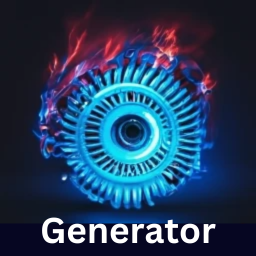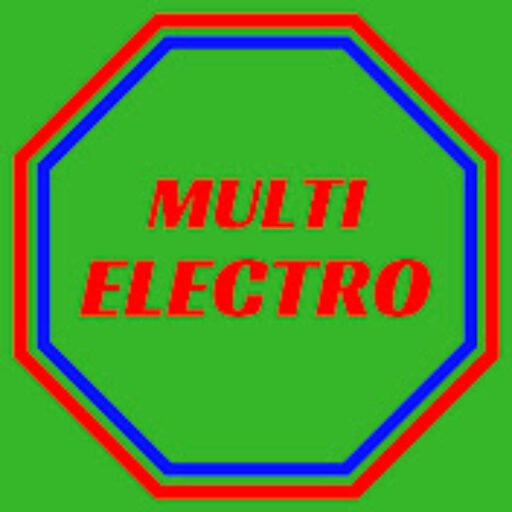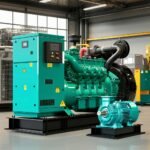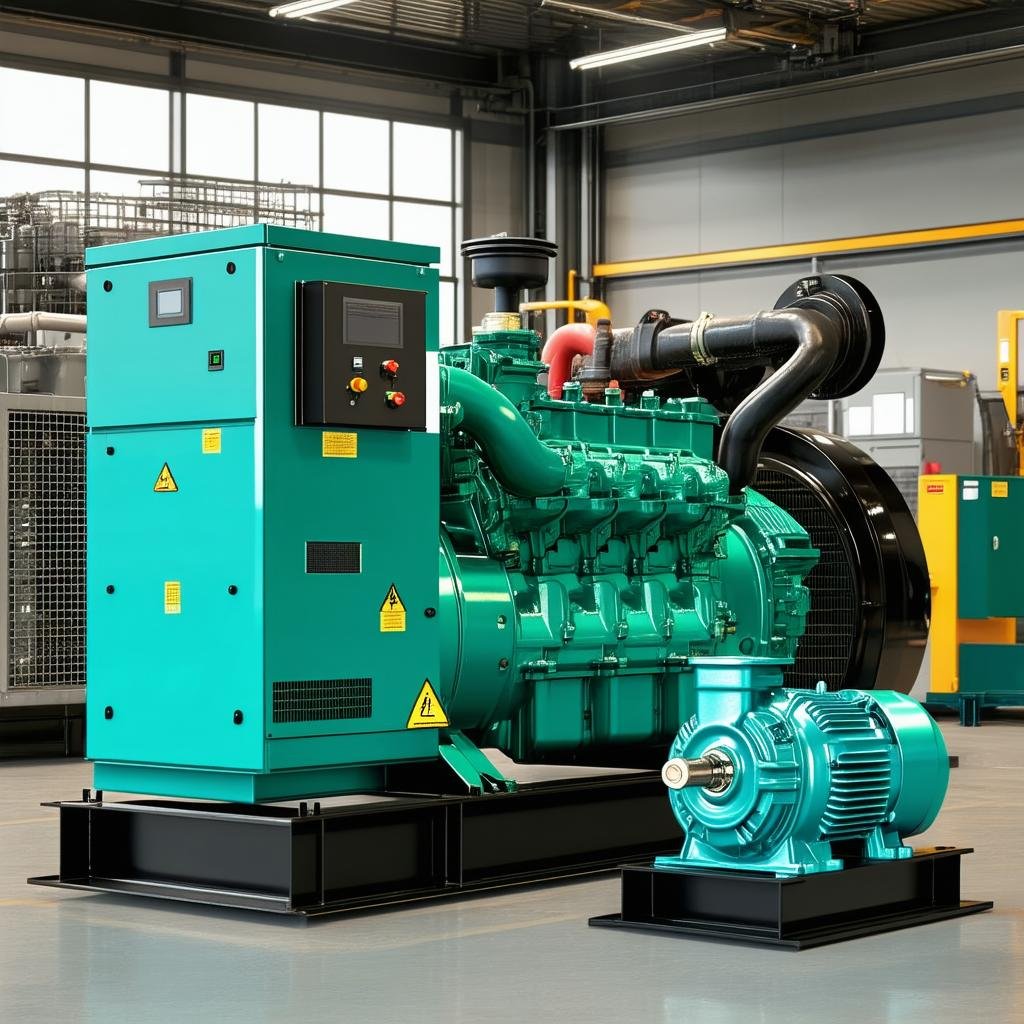
The Ultimate Guide to Understanding and Utilizing Generator
In our comprehensive guide, we delve into the intricate world of generator, providing you with the ultimate knowledge to understand and utilize these powerful machines. Generators, the unsung heroes of our modern world, are often overlooked until we find ourselves in a power outage, desperately needing a backup source of electricity. They are the lifeline that keeps our homes, businesses, and industries running smoothly, ensuring that our daily routines are not disrupted.
Understanding the mechanics of generators is not as daunting as it may seem. At their core, generators convert mechanical energy into electrical energy, a process known as electromagnetic induction. This process was first discovered by Michael Faraday in 1831 and has since been the foundation of every generator. The mechanical energy can be derived from various sources, including gas, diesel, propane, or even solar power.
The heart of a generator is its engine, which is responsible for producing the mechanical energy. The size and power of the engine determine the output of the generator. Larger engines produce more power, making them ideal for industrial use, while smaller engines are perfect for residential use. The engine is connected to an alternator, which converts the mechanical energy into electrical energy.
Generators come in different types, each with its unique features and benefits. Standby generators, for instance, are permanently installed and automatically kick in when there’s a power outage, providing uninterrupted power supply. Portable generators, on the other hand, are mobile and can be used for camping, tailgating, or as a backup power source for small appliances. Inverter generators are a newer, more advanced type of generator that produces cleaner, more stable power, making them ideal for sensitive electronics.
Utilizing generators effectively requires understanding their capacity and how to maintain them. The capacity of a generator is measured in watts and determines how many appliances or devices it can power simultaneously. It’s crucial to calculate your power needs accurately to avoid overloading the generator. Regular maintenance, including changing the oil, cleaning the air filter, and inspecting the spark plugs, ensures that your generator runs efficiently and prolongs its lifespan.
In conclusion, generators are an essential part of our lives, providing us with a reliable source of power when we need it most. Understanding how they work and how to utilize them effectively can save you from a lot of inconveniences and ensure that you’re never left in the dark. Whether you’re a homeowner, a business owner, or an outdoor enthusiast, a generator is a worthwhile investment that guarantees peace of mind.
Introduction to Generators
Generators are an essential piece of equipment in our daily lives, providing a reliable source of power during outages or in remote locations. This comprehensive guide will delve into the intricacies of generators, their types, uses, and maintenance tips.
In our comprehensive exploration of generators, we delve into the intricate workings of these power-producing machines, unraveling their complexities and highlighting their indispensable role in our modern world. Generators, in their essence, are marvels of engineering, converting mechanical energy into electrical energy, serving as a reliable backup during power outages, and facilitating operations in remote areas. The principle of electromagnetic induction, discovered by Michael Faraday, forms the bedrock of generator technology. As we delve deeper, we find that generators are classified into two broad categories: AC and DC generators. AC generators, or alternators, produce an alternating current, which is the standard form of electricity used in our homes and businesses. On the other hand, DC generators produce a direct current, a type of electricity primarily used for battery charging and similar applications.
The heart of a generator is its engine, which can be powered by various fuels such as diesel, gasoline, propane, or natural gas. The engine’s size and power output directly influence the generator’s capacity, measured in watts. The alternator, another critical component, houses both the rotor (which rotates) and the stator (which remains stationary). The interaction between these two components, through the principle of electromagnetic induction, generates electricity.
Moreover, generators come with an array of features designed to enhance their functionality and safety. Automatic Voltage Regulation (AVR) ensures a consistent voltage output, protecting your devices from voltage fluctuations. Similarly, features like low-oil shutdown prevent damage to the generator’s engine, while overload protection safeguards the generator and your appliances from being overloaded.
In the realm of portable generators, inverter technology has revolutionized efficiency and noise levels. Inverter generators, through advanced electronics and magnets, produce a clean and stable power curve suitable for sensitive electronics like laptops and televisions.
From construction sites and outdoor events to residential backup power, generators play a pivotal role in ensuring uninterrupted power supply. As we continue to rely heavily on electricity, the importance of understanding and choosing the right generator cannot be overstated. In this comprehensive guide, we’ve aimed to shed light on the intricate workings of generators, their types, components, and features, to help you make an informed decision based on your power needs.
In conclusion, generators, with their ability to convert mechanical energy into electrical energy, stand as a testament to human ingenuity. Their role in powering our world, quite literally, is a reminder of our reliance on electricity and the importance of having a reliable backup power source. As technology continues to evolve, we can expect to see even more efficient and user-friendly generators in the future.
The Science Behind Generators
Generators convert mechanical energy into electrical energy. This process, known as electromagnetic induction, was discovered by Michael Faraday in 1831. The generator’s engine powers a rotating shaft, which turns a magnet within a coil of wire, creating a flow of electricity.
In our quest to understand the science behind generators, we delve into the intricate world of electromagnetism, mechanical energy, and electrical energy. Generators, as we know, are pivotal in our daily lives, powering everything from our homes to our industries. But what is the science that makes these machines so indispensable? It all starts with the principle of electromagnetic induction, discovered by Michael Faraday in 1831. This principle states that a change in the magnetic field within a closed loop of wire induces an electromotive force (EMF) in the wire. In simpler terms, when a wire coil rotates in a magnetic field, it generates an electric current. This is the fundamental principle behind the operation of a generator.
The generator, in essence, is a device that converts mechanical energy into electrical energy. The mechanical energy forces a generator to spin, which then creates a magnetic field that induces a flow of electric current. The source of this mechanical energy can vary, from a turbine spun by wind, water, or steam, to an internal combustion engine or even a hand crank. The mechanical energy causes the generator’s rotor to spin, creating a rotating magnetic field within the stator, the stationary part of a generator. This rotating magnetic field induces a flow of electricity in the stator windings, producing alternating current (AC).
The generator’s output voltage is controlled by the speed of the rotation and the strength of the magnetic field. The faster the rotation and the stronger the magnetic field, the higher the output voltage. This is why larger generators, which have more powerful engines and larger magnetic fields, can produce more electricity.
The type of generator also plays a significant role in its operation. For instance, in an AC generator, or alternator, the mechanical energy causes the rotor to rotate, producing AC. In a DC generator, a device called a commutator is used to convert the AC produced in the rotor into DC.
Generators also come with an automatic voltage regulator (AVR) that ensures the output voltage remains constant, regardless of the load. The AVR adjusts the field current – the current in the rotor winding – to control the generator’s output voltage. If the load increases, the AVR increases the field current, which increases the output voltage. Conversely, if the load decreases, the AVR reduces the field current, which decreases the output voltage.
In conclusion, the science behind generators is a fascinating blend of physics, engineering, and innovation. It’s a testament to human ingenuity and our ability to harness the forces of nature for our benefit. As we continue to explore and innovate, who knows what the future holds for this remarkable technology?
Types of Generators
There are several types of generators, each with its unique features and applications.
Portable Generators
Portable generators are compact, movable units that provide temporary power. They are ideal for camping trips, construction sites, or as a backup power source for homes during power outages.
In the realm of power solutions, portable generators have emerged as a game-changer, offering unparalleled convenience and flexibility. As we delve into the intricacies of these powerhouses, we aim to provide a comprehensive understanding of their functionality, benefits, and the factors to consider when choosing the perfect portable generator for your needs.
Portable generators, as the name suggests, are compact, movable power sources that can be used in a variety of settings. From providing emergency backup during power outages to powering your camping trips or construction sites, these generators are designed to deliver reliable power wherever you need it. They operate on various types of fuel, including gasoline, propane, and diesel, offering a range of options to suit different requirements.
One of the key advantages of portable generators is their versatility. Whether you need to power essential appliances during a blackout, run power tools at a remote job site, or keep your devices charged during an outdoor adventure, a portable generator can handle it all. They are designed to be user-friendly, with features like easy start mechanisms, fuel gauges, and multiple outlets for connecting different appliances.
When choosing a portable generator, it’s crucial to consider factors like power output, fuel efficiency, noise level, and portability. The power output, measured in watts, determines the number of appliances or tools the generator can run simultaneously. Fuel efficiency is another critical factor, as it impacts the running cost and environmental footprint of the generator. Noise level is particularly important if you plan to use the generator in a residential area or for recreational purposes. Lastly, the size, weight, and design of the generator affect its portability and ease of storage.
In terms of brands, there are several reputable manufacturers of portable generators, each offering a range of models with different features and specifications. Some of the leading brands include Honda, Generac, Yamaha, and Champion, among others. These brands are known for their quality, reliability, and after-sales service, making them a safe choice for consumers.
In conclusion, portable generators are a versatile and reliable power solution for a variety of applications. By understanding their features and considering your specific needs, you can choose the perfect portable generator that offers the right balance of power, efficiency, noise level, and portability. As we continue to explore the world of portable generators, we aim to provide you with the most accurate, up-to-date, and comprehensive information, helping you make an informed decision.
Standby Generators
Standby generators are permanently installed and provide automatic power during blackouts. They are typically used in hospitals, data centers, and homes with critical power needs.
In the realm of power solutions, standby generators have emerged as a beacon of reliability, ensuring that our lives remain uninterrupted in the face of power outages. As we delve into the intricacies of these powerhouses, we’ll explore their functionality, benefits, and the pivotal role they play in our modern world. Standby generators, also known as backup generators, are designed to automatically supply electricity to your home or business when there’s a power outage. Unlike portable generators, these are permanently installed on a concrete pad in your yard and will provide uninterrupted backup for days. That’s because they’re connected directly to your property’s electrical panel and powered by an external fuel supply, such as natural gas, liquid propane, or diesel.
When the power goes out, the automatic transfer switch of the standby generator safely disconnects the utility line and transfers to the generator. Once utility power returns, it automatically switches back and resumes its standby mode, ready for the next outage. This seamless operation makes standby generators an ideal choice for businesses, hospitals, and homes alike. They ensure that operations continue smoothly, medical equipment remains functional, and your home stays lit and comfortable.
Standby generators come in a variety of sizes, each designed to meet different power needs. From compact models capable of powering a few essential appliances to larger units that can power an entire facility, there’s a standby generator for every requirement. When choosing a standby generator, it’s crucial to consider your power needs, fuel availability, and budget.
Investing in a standby generator is not just about convenience; it’s about safety, productivity, and peace of mind. In a world increasingly reliant on power, a sudden outage can disrupt businesses, halt essential services, and make homes uninhabitable. Standby generators bridge this gap, providing a reliable power solution that keeps our world moving, even when the power grid fails.
In conclusion, standby generators are an integral part of our power infrastructure, providing a reliable backup when the main power supply fails. Their automatic operation, diverse range, and the peace of mind they offer make them an invaluable investment for homes and businesses alike. As we continue to rely more on power, the importance of standby generators will only continue to grow. So, whether it’s to keep your business running, your home comfortable, or essential services operational, investing in a standby generator is a decision you won’t regret.
Inverter Generators
Inverter generators produce a steady flow of electricity, making them ideal for sensitive electronic devices. They are quieter and more fuel-efficient than traditional generators.
In the realm of portable power solutions, Inverter Generators have emerged as a game-changer, revolutionizing the way we perceive and utilize portable energy. As we delve into the intricacies of these innovative machines, we’ll uncover the myriad of benefits they offer, from their unparalleled efficiency to their remarkably quiet operation.
Inverter generators, unlike their traditional counterparts, employ a unique three-phase generation process. This involves producing high-frequency AC, converting it to DC, and then inverting it back to a clean, stable AC. This intricate process results in a consistent power output that’s free from fluctuations, making inverter generators the ideal choice for powering sensitive electronics like laptops, televisions, and mobile devices.
Moreover, the fuel efficiency of inverter generators is second to none. They’re designed to adjust the engine speed based on the power demand, thereby conserving fuel and reducing emissions. This dynamic response to power needs not only makes them environmentally friendly but also ensures longer run times, making them a reliable power source for extended periods.
Another noteworthy feature of inverter generators is their compact and lightweight design. They’re built with portability in mind, making them perfect for a variety of outdoor activities like camping, tailgating, and RV trips. Despite their small size, they pack a punch when it comes to power output, with some models capable of delivering up to 4000 watts.
In terms of noise level, inverter generators are remarkably quiet. Their advanced technology and sound-dampening materials work in harmony to minimize noise, making them a preferred choice for use in quiet zones and residential areas.
Furthermore, the parallel capability of inverter generators is a feature that sets them apart. This allows you to connect two identical units to double the power output without needing a larger, heavier generator. It’s a practical solution for those instances when you need more power than a single unit can provide.
In conclusion, inverter generators are a testament to technological advancement in the portable power industry. Their superior performance, coupled with their fuel efficiency, compact design, quiet operation, and parallel capability, make them an excellent choice for a wide range of applications. As we continue to embrace technology in our daily lives, the demand for reliable, efficient, and portable power solutions like inverter generators will undoubtedly continue to grow.
In the world of inverter generators, knowledge is power. The more you understand about these innovative machines, the better equipped you’ll be to make an informed decision when investing in a portable power solution. So, whether you’re planning a camping trip, preparing for a power outage, or simply need a reliable power source for your outdoor event, an inverter generator could be the perfect solution.
Choosing the Right Generator
Selecting the right generator depends on your power needs, budget, and the intended use. Consider factors like wattage, fuel type, noise level, and portability.
Choosing the right generator is a critical decision that can significantly impact your comfort, productivity, and safety during power outages. As we delve into this comprehensive guide, we’ll explore the various types of generators available in the market, their features, benefits, and potential drawbacks. We’ll also provide you with practical tips and insights to help you make an informed decision that suits your specific needs and budget.
Firstly, let’s understand the importance of having a reliable generator. In today’s digital age, where we heavily rely on electricity for almost everything, from powering our homes and offices to charging our devices and appliances, a power outage can disrupt our daily routines and operations. A generator serves as a backup power source, ensuring that we can continue our activities uninterrupted.
Now, when it comes to choosing the right generator, there are several factors to consider. The first is the type of generator. There are primarily three types: standby generators, portable generators, and inverter generators. Standby generators are permanently installed and automatically kick in when there’s a power outage. They are ideal for homes and businesses that require a constant power supply. Portable generators, on the other hand, are compact, movable, and perfect for camping trips, construction sites, or temporary power needs. Inverter generators are the most advanced, offering clean, stable power suitable for sensitive electronics. They are also quieter and more fuel-efficient than traditional generators.
The second factor to consider is the generator’s power output, measured in watts. The right power output depends on what you intend to power. For instance, a small portable generator producing 3,000 to 4,000 watts can comfortably power a refrigerator, a few lights, and a television. However, if you need to power an entire house or a large office, you might need a standby generator with a power output of 20,000 watts or more.
The third factor is the generator’s fuel type. Generators can run on various fuels, including gasoline, diesel, propane, or natural gas. Each fuel type has its pros and cons. For example, gasoline is readily available but has a short shelf life. Diesel generators are more fuel-efficient but produce more noise. Propane has a long shelf life and is cleaner-burning, while natural gas generators can tap into the municipal gas supply, eliminating the need for fuel storage.
Lastly, consider the generator’s features and ease of use. Look for features like an electric start, automatic voltage regulation, multiple outlets, fuel gauge, and low-oil shutdown. Also, consider the generator’s noise level, especially if you live in a residential area with noise restrictions.
In conclusion, choosing the right generator involves a careful evaluation of your power needs, the type of generator, power output, fuel type, and additional features. By considering these factors, you can find a generator that offers reliable power, convenience, and peace of mind during power outages.
Generator Maintenance Tips
Proper maintenance extends the lifespan of your generator and ensures it operates efficiently. Regularly check the oil level, clean the air filter, and run the generator periodically to keep it in good condition.
In our comprehensive guide to generator maintenance, we delve into the intricacies of ensuring your power source remains in optimal condition. We understand the importance of a reliable generator, especially in times of power outages and emergencies. Therefore, we’ve compiled a detailed, in-depth guide to help you keep your generator running smoothly and efficiently.
Firstly, it’s crucial to understand the importance of regular maintenance. Just like any other machine, generators require consistent care to function at their best. Regular maintenance not only prolongs the lifespan of your generator but also ensures it operates efficiently when you need it most.
One of the most fundamental aspects of generator maintenance is checking and changing the oil. Generators, much like automobiles, require oil to lubricate their moving parts and prevent wear and tear. We recommend checking the oil level every time you use your generator and changing the oil after every 50-60 hours of use.
Another critical aspect of generator maintenance is inspecting and replacing the air filter. A clean air filter ensures that your generator’s engine receives a steady flow of clean air, which is essential for efficient combustion. We suggest checking the air filter every 25 hours of use and replacing it if it’s dirty or damaged.
Furthermore, it’s essential to keep the generator’s fuel system clean. Over time, fuel can degrade and leave behind deposits that can clog the fuel system and hinder the generator’s performance. Therefore, we advise draining the fuel tank and cleaning the fuel filter regularly to prevent these issues.
Moreover, it’s crucial to inspect the generator’s spark plugs regularly. Worn or damaged spark plugs can cause the generator to run poorly or not start at all. We recommend checking the spark plugs every 100 hours of use and replacing them if necessary.
Lastly, it’s important to store your generator properly when it’s not in use. We suggest storing it in a clean, dry place and running it for a few minutes every month to keep the parts lubricated and the battery charged.
In conclusion, regular maintenance is key to ensuring your generator remains reliable and efficient. By following these tips, you can prolong the lifespan of your generator and ensure it’s ready to provide power when you need it most. Remember, a well-maintained generator is a reliable generator.
Safety Precautions When Using Generators
Generators can be hazardous if not used correctly. Always operate generators outdoors to prevent carbon monoxide poisoning, keep them dry to avoid electrocution, and never refuel a running generator.
In our comprehensive guide on “Safety Precautions When Using Generators”, we delve into the intricate details of generator usage, ensuring that you are well-equipped with the knowledge to operate these machines safely and efficiently. Generators, while being a boon during power outages, can pose significant risks if not handled correctly. Therefore, understanding the safety measures is not just a recommendation, but a necessity.
Firstly, location is paramount when it comes to generator usage. Never operate a generator indoors or in enclosed spaces. Doing so can lead to a build-up of carbon monoxide, which is lethal. Always ensure that the generator is placed in a well-ventilated area, away from windows, doors, and vents.
Secondly, fuel handling is another crucial aspect. Always turn off the generator and let it cool down before refueling. Pouring fuel into a running or hot generator can cause the fuel to ignite, leading to a fire hazard.
Thirdly, electrical safety is of utmost importance. Avoid plugging the generator directly into a wall outlet. This practice, known as back feeding, can lead to an increase in voltage that could result in a fire or electrocution. Instead, use a heavy-duty extension cord designed for outdoor use.
Moreover, maintenance of the generator is essential for its safe operation. Regularly check the generator for signs of wear and tear. Ensure that the oil and filters are changed as per the manufacturer’s instructions.
Lastly, proper storage of generators can prolong their lifespan and ensure safety. Store generators in a dry, clean area and cover them to protect from dust and debris.
In conclusion, while generators can be a lifesaver during power outages, they need to be handled with care. By following these safety precautions, you can ensure a safe and efficient operation of your generator. Remember, safety should never be compromised.
This comprehensive guide aims to provide you with all the necessary information about generator safety. By adhering to these guidelines, you can not only ensure your safety but also enhance the longevity of your generator. So, the next time you find yourself in a situation where you need to use a generator, remember these safety precautions and operate the machine with confidence and caution.
Conclusion
Generators are a vital tool in ensuring a steady supply of power. Understanding their workings, types, and maintenance requirements can help you make an informed decision when purchasing and using a generator.
FAQs
Q1: How does a generator work?
A: A generator works by converting mechanical energy into electrical energy through a process called electromagnetic induction.
Q2: What are the different types of generators?
A: The main types of generators are portable generators, standby generators, and inverter generators.
Q3: How do I choose the right generator?
A: Choosing the right generator depends on your power needs, budget, and the intended use.
Q4: How do I maintain a generator?
A: Regular maintenance includes checking the oil level, cleaning the air filter, and running the generator periodically.
Q5: What safety precautions should I take when using a generator?
A: Always operate generators outdoors, keep them dry, and never refuel a running generator.








One thought on “Generator”